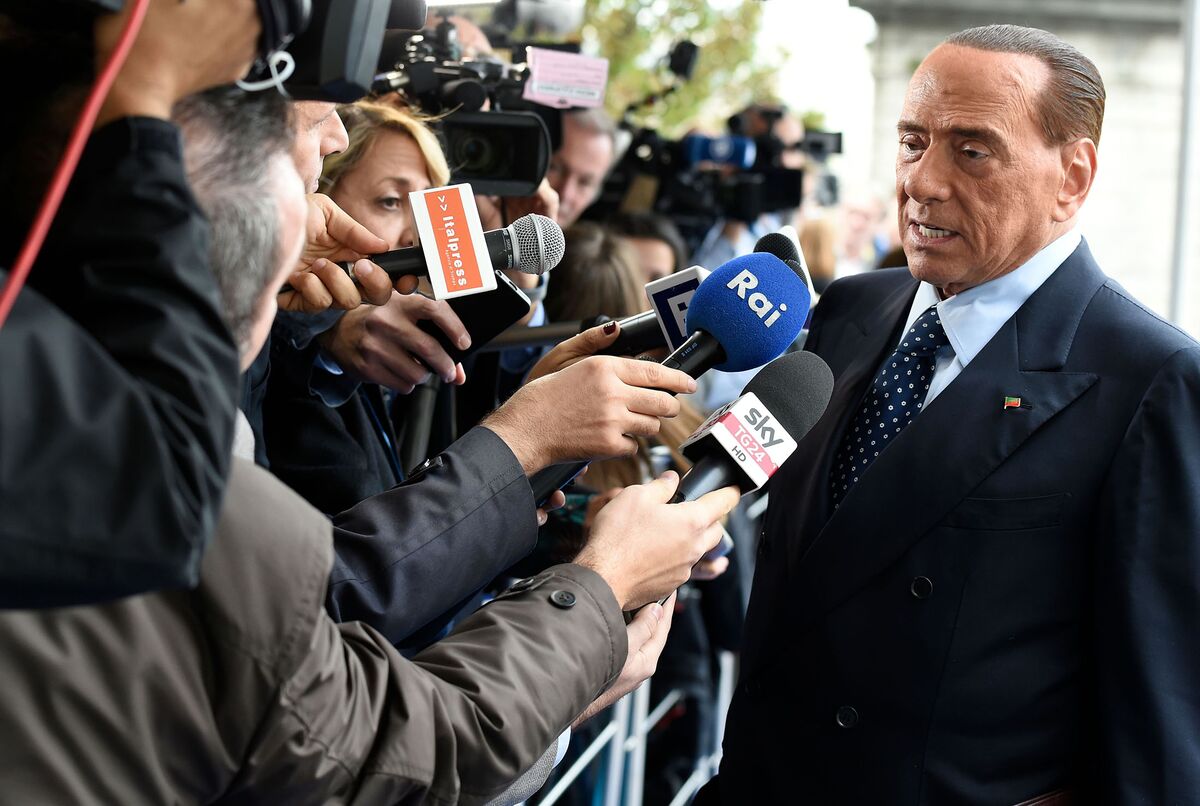
A coalition backed by ex-premier Silvio Berlusconi is taking on the populist Five Star Movement for control of Sicily on Sunday, a barometer of party fortunes ahead of next year’s general election in Italy.
Victory for the center-right would strengthen Berlusconi, 81, in his drive to forge a similar bloc for the national vote due in spring 2018, exploiting a new electoral system that favors alliances. A win for Five Star, which insists on campaigning alone in all elections, would give them control of their first region.
Polls taken before the vote among Sicily’s 4.6 million-strong electorate suggested that center-right candidate Nello Musumeci, a former junior labor minister under Berlusconi, was marginally ahead of Five Star’s Giancarlo Cancelleri and Fabrizio Micari, running for the center-left Democratic Party of Prime Minister Paolo Gentiloni.
Balloting for Sicily’s governor and assembly begins at 8 a. local time and exit polls are due when voting stations close at 10 p. Counting of ballots starts at 8 a.
“If the center-right wins in Sicily, it will have big possibilities nationally, the only issue is who will emerge as its leader,” said Giorgio Freddi, professor emeritus of political science at the University of Bologna. “Five Star taking Sicily would make the movement stronger, but it will still have the problem that it refuses to form a coalition before any election.”
It Takes More Than Mafia Threats and Populists to Scare Sicily
Renzi, Berlusconi
Nationally, recent surveys show a possible pre-election alliance of Berlusconi’s Forza Italia, the euroskeptic and anti-migrant Northern League, and the right-wing Brothers of Italy party would beat both Five Star and the Democrats. But with none of the three blocs forecast to win an absolute majority, a government alliance between ex-premier Matteo Renzi’s Democratic Party and Berlusconi is a possibility.
Berlusconi is seeking to overturn a ban on his running for public office that resulted from a tax-fraud conviction, and he has consistently denied all wrongdoing. He unveiled what he said was a program for national government agreed to with the League’s Matteo Salvini and Giorgia Meloni of Brothers of Italy. Berlusconi said it included “less constraints from the European Union, less taxes and less state.”
Salvini, Berlusconi’s rival for leadership of the coalition, was less enthusiastic than the ex-premier however, saying the Sicily vote was not “a general rehearsal for government” at the national level.
The Sicilian campaign has focused on the island’s economic ills, with youth unemployment at 57 percent compared to a national average of 38 percent, and the economy shrinking by 12.7 percent from 2007 to 2015, compared to 7. The center-right’s Musumeci, who calls Sicily “a laboratory for Italian politics,” wants to boost job creation with more vocational training for the young and help for start-ups.
Voter Anger
Five Star is exploiting voter anger at Sicily’s rulers, economic decline, and migrants from across the Mediterranean. Its candidate Cancelleri wants better use of EU funds to create jobs, and a basic universal income for the poor and the jobless.
Whoever wins in Sicily, Freddi of the University of Bologna sees no bright political future ahead for the country. “A hung parliament couldn’t be more worrying, because it doesn’t bode well for the economy,” he said. “I don’t see the next government lasting very long, we may even need new elections in the summer.”
Fabio Fois, senior European economist at Barclays Plc in Milan, wrote in a note to clients that he sees what he called “a narrow grand coalition” of the Democrats, Forza Italia and the small Popular Alternative party. Such a coalition on the national level would have comparatively better chances than other alliances to press ahead “with the structural reforms needed to unlock further potential growth and put public debt on a steady declining path,” he wrote.
In the meantime Berlusconi, long-known as “The Great Communicator,” was generous with campaign pledges at a rally in Catania on Thursday. He promised to loud cheers a long-discussed bridge between Sicily and the mainland, a “Marshall Plan for Sicily” with 2 billion euros ($2.3 billion) to 4 billion euros a year to build infrastructures, railways and ports -- and even discounted flights to the mainland for Sicilians.
— With assistance by Lorenzo Totaro, Dan Liefgreen, and Giovanni Salzano.


0 comments:
Post a Comment